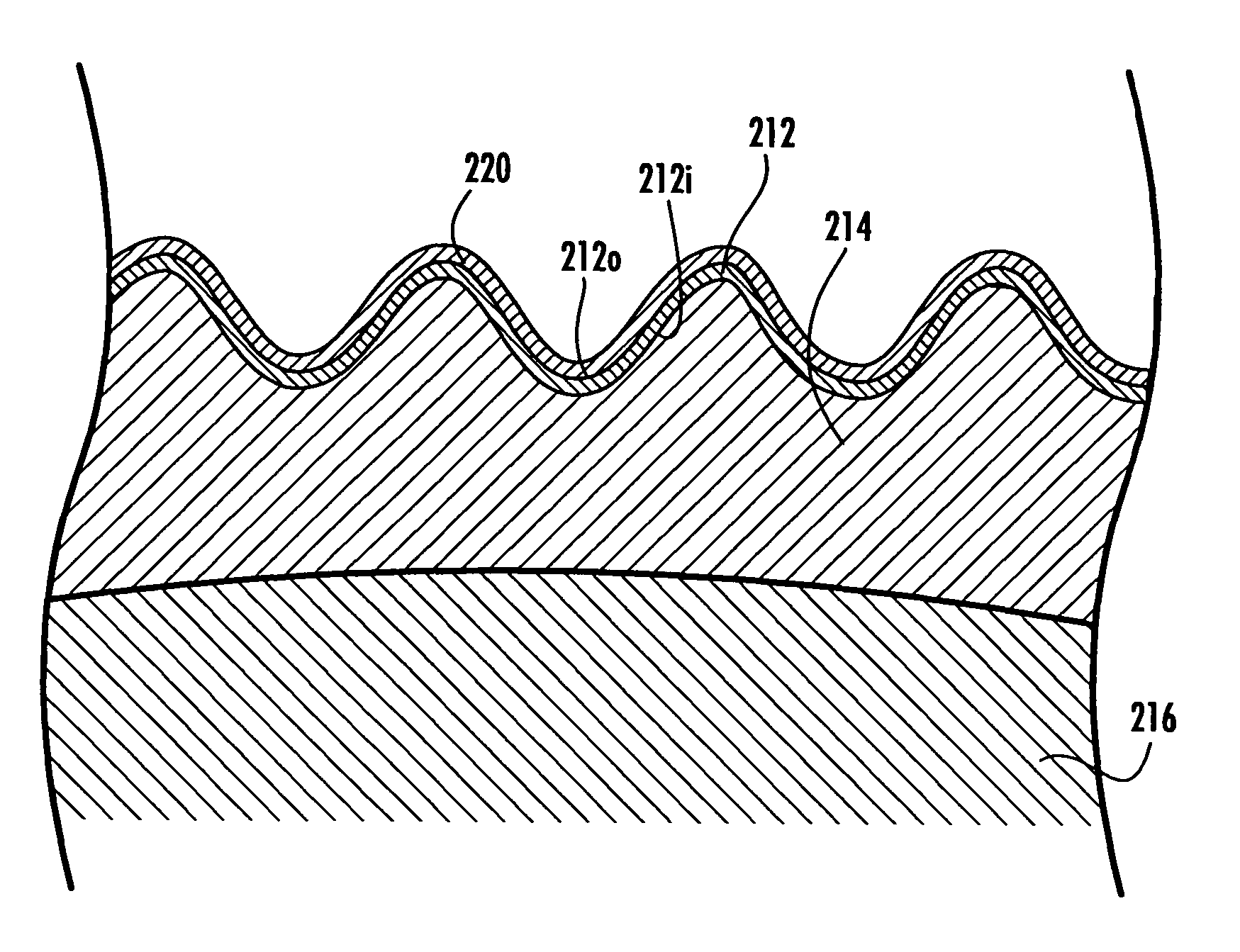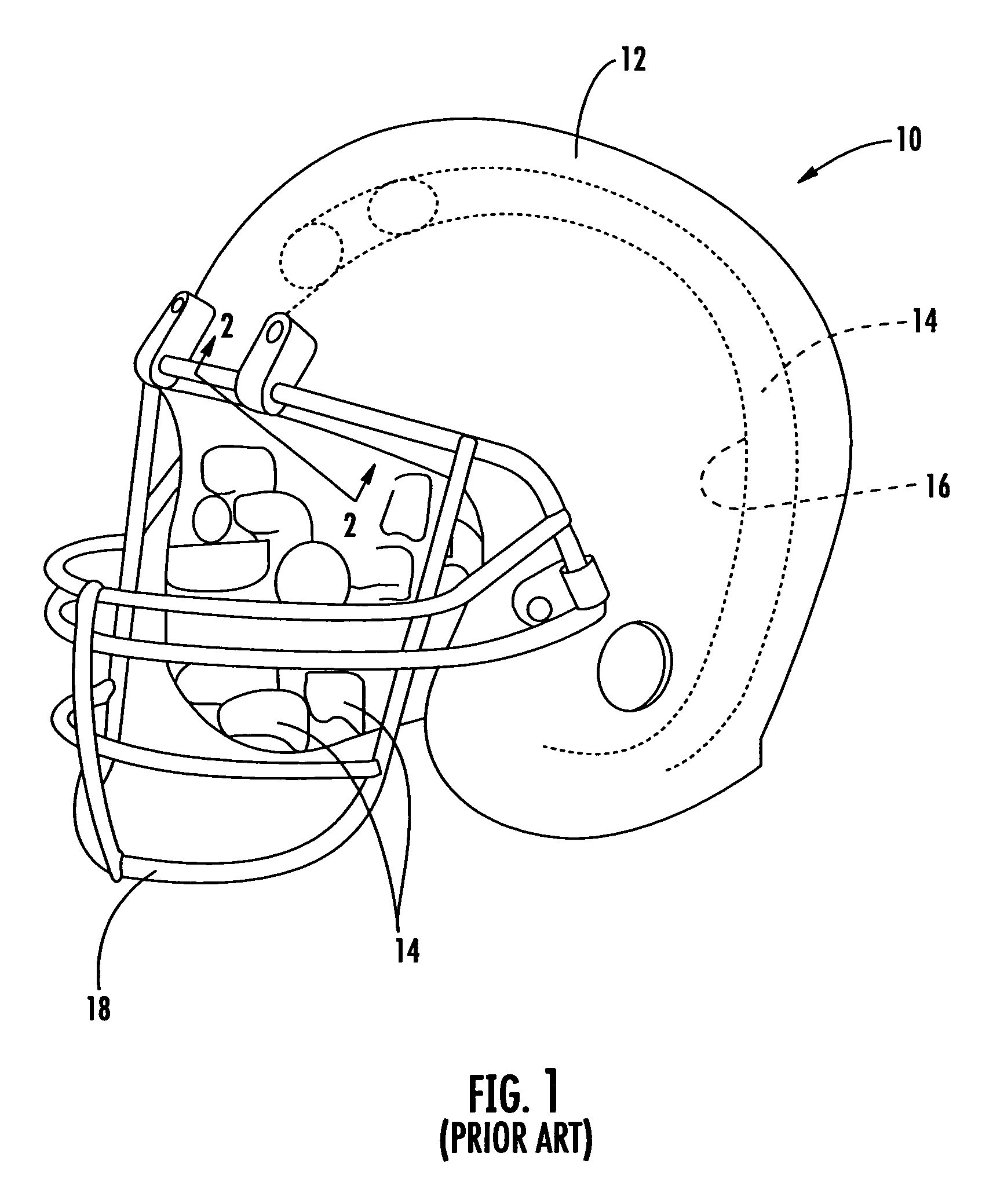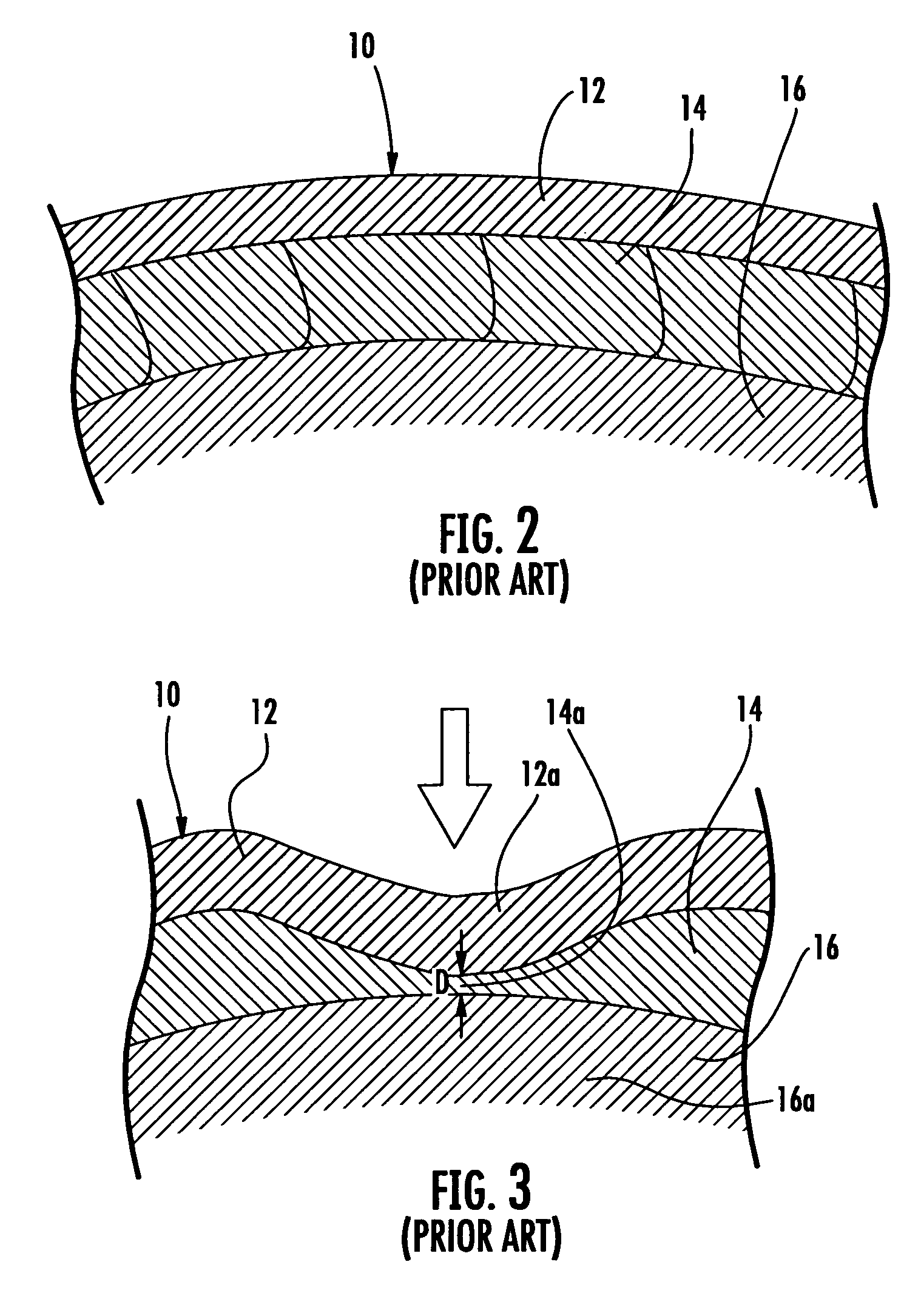Protective headgear with improved shell construction
a protective headgear and shell technology, applied in the direction of protective garments, headwear caps, hats, etc., can solve the problems of reducing affecting the safety of helmets, and affecting the protection of helmets, so as to improve safety and protection, improve safety and effectiveness, and ensure safety and protection. the effect of helmets
- Summary
- Abstract
- Description
- Claims
- Application Information
AI Technical Summary
Benefits of technology
Problems solved by technology
Method used
Image
Examples
Embodiment Construction
[0036]Turning first to FIGS. 4-6 a preferred embodiment of the headgear construction 100 of present invention is shown in detail. The headgear construction 100 of the present invention includes an outer rigid shell 112 with ear holes 102 and a front opening 104 to enable the wearer 116 to see in front of them. A cage 118 is affixed to the helmet 100 at the front opening 104 to protect the face of the wearer 116. The cage 118 can also be made of materials other than metal wire, such as plastic and polycarbonate.
[0037]The shell 112 of the present invention is unique in that it includes an undulating profile rather than the flat profile that is employed in prior art constructions, such as that illustrated in FIGS. 1 and 2. The undulating profile of the shell 112 can be any type of load spreading undulating profile, such as that of a sinusoidal or triangular wave configuration. A sinusoid profile is shown in FIGS. 4-6 while a shell 512 with triangular profile is shown in FIG. 11. In FIG...
PUM
 Login to View More
Login to View More Abstract
Description
Claims
Application Information
 Login to View More
Login to View More - R&D
- Intellectual Property
- Life Sciences
- Materials
- Tech Scout
- Unparalleled Data Quality
- Higher Quality Content
- 60% Fewer Hallucinations
Browse by: Latest US Patents, China's latest patents, Technical Efficacy Thesaurus, Application Domain, Technology Topic, Popular Technical Reports.
© 2025 PatSnap. All rights reserved.Legal|Privacy policy|Modern Slavery Act Transparency Statement|Sitemap|About US| Contact US: help@patsnap.com



